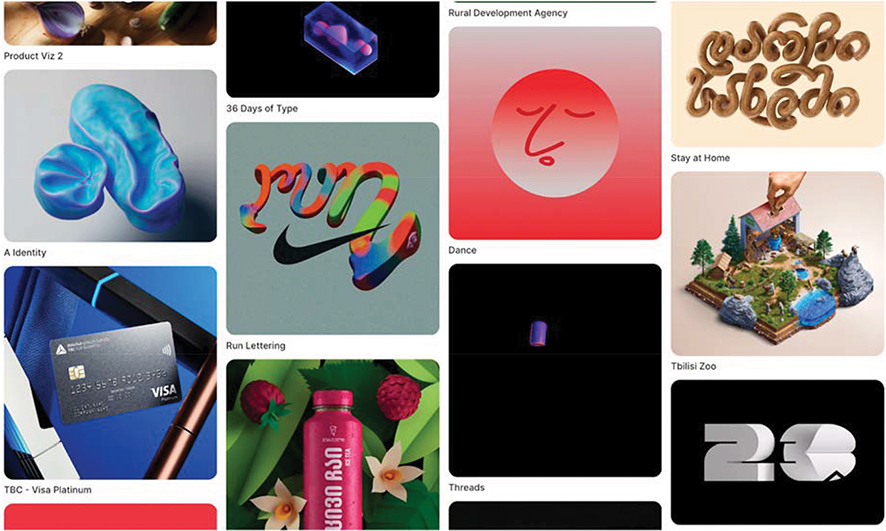When Abesalom Kavelashvili announced on LinkedIn that he had been appointed art director of Apple, the global design community paused — not simply to marvel at a Georgian name atop Silicon Valley’s Olympus, but to contemplate the deeper currents this appointment represents. In a world where visual languages are as geopolitically charged as oil or algorithms, what does it mean for a designer from Tbilisi — a city on the fault lines of empire, revolution, and renaissance — to take the aesthetic reins of the world’s most mythologized tech company?
This is more than a personal success story. It’s a cultural and symbolic moment worth decoding — one that reflects on the geopolitics of design, the anthropology of branding, and the unexpected vectors of global influence.
From Post-Soviet Grid to Infinite Loop: The Cultural Capital of the Periphery
Kavelashvili’s trajectory — from crafting identities for Georgian institutions like TBC Bank and Borjomi to shaping the image of Apple, the world’s most valuable company — embodies a peculiar reversal of center and periphery. Anthropologist Arjun Appadurai once described global cultural flows as “scapes” — mediascapes, ideoscapes, technoscapes — that do not necessarily follow the old colonial map. Kavelashvili’s career maps one such flow.
Georgia, historically a contested borderland between East and West, Orthodox and secular, Soviet and postmodern, now exports not just wine or polyphonic choirs, but design language. This shift is emblematic of a larger phenomenon: the rise of designers from ‘small cultures’ in global branding arenas. Think of Iranian-born graphic designer Reza Abedini, or the Polish studio Podpunkt’s work for European institutions. These voices rewire dominant aesthetics not by mimicking Silicon Valley, but by subtly inflecting them with their own symbolic grammars.

Apple as Ideology: Why Art Direction is Political
To understand the gravity of the position Kavelashvili now holds, one must understand Apple not merely as a company but as what media theorist McKenzie Wark might call a “semiotic regime.” Its design choices — from skeuomorphism to flat design, from Helvetica to San Francisco font — ripple across digital and physical cultures. Apple’s aesthetic hegemony defines not just product appeal but the very look of modernity.
Art direction at Apple is thus a form of cultural authorship. It shapes the interfaces of daily life for billions. In a Benjaminian sense, it’s the aestheticization of technology — or, perhaps more provocatively, the technologization of aesthetics.
And here enters a Georgian — a product of a culture rich in ornament, narrative, and tension. What happens when someone whose visual memory includes the handmade signage of Rustaveli Avenue, the brutalist utopias of Soviet-era housing blocks, and the surrealist collages of Irakli Parjiani, takes hold of the clean, monochrome world of Apple?
Design after the End of History: Postmodern Hybridity and Soft Power
In many ways, Kavelashvili’s appointment signals a deepening of what theorists like Homi Bhabha have called “third space” culture — neither fully Western nor Eastern, neither traditional nor hypermodern, but a hybrid site of negotiation. His design language, visible in past work for brands like Coca-Cola and Samsung, as well as Georgian institutions, is marked by motion, layering, and conceptual irony — suggestive of a post-structural design sensibility. He doesn’t deliver static images: he orchestrates symbolic movement.
In that sense, his work resonates with the shift from static to kinetic identity in global branding.
Companies now want their logos and interfaces to feel alive — mutable, narrative, immersive. Kavelashvili’s focus on 3D motion design aligns with this turn, but adds to it a depth that is rare: a sense of historical and cultural memory embedded within sleek futurism.
Soft power today often works through the aesthetic — through the Apple Store experience, the onboarding animation, the kerning of a campaign slogan. Designers are cultural diplomats. And perhaps paradoxically, those from cultures long marginalized are now best equipped to articulate the nuanced languages global brands crave: less brash, more poetic; less American, more planetary.

The Post-National Designer: On Identity without Borders
But what does it mean for a Georgian designer to rise through the ranks of agencies like Turner Dacrosse and land at Apple’s zenith? Is this the story of talent transcending borders — or of borders becoming aestheticized?
The answer is both. Sociologist Ulrich Beck’s notion of “cosmopolitan realism” might be helpful here: the idea that individuals now live within multiple overlapping realities — national, global, digital — that shape their professional and cultural output. Kavelashvili’s career reflects this polyphonic condition. His work for Walmart might carry echoes of post-Soviet typography. His Georgian banking campaigns are inflected with Silicon Valley’s user-friendly minimalism. This isn’t identity dilution. It is identity modulation.
And yet, the symbolic power of being Georgian in San Francisco matters. It re-inscribes the map of creative influence. It opens space for imagining new narratives of globalization — ones where the semiotic codes of Chiatura’s ropeways or the Tbilisi State Academy of Arts might someday inform the look of the next iPhone campaign.
Cultural Memory in the Interface: Why This Moment Matters
Kavelashvili’s presence at Apple comes at a time when design is being asked to do contradictory things. To dazzle and soothe. To seduce and reassure. To be everywhere and invisible. In that paradox, the design director becomes a kind of oracle — half technologist, half mythographer.
What myth does Kavelashvili bring with him? In a 2019 interview, he described his creative philosophy as “narrative-centric and emotionally precise.” That formulation could equally apply to Georgian literature, with its fusion of epic and everyday; or to the tapestries of Niko Pirosmani, where peasant wine-drinkers become icons. The point is not that he brings “Georgian elements” to Apple, but that his cultural calibration — honed in a country where tragedy, festivity, and resistance intertwine — allows him to design not just images, but effects.
The Next Aesthetic Epoch?
Design historian Alice Rawsthorn once said that design is “one of the most powerful tools at our disposal for shaping the world.” With the rise of designers like Abesalom Kavelashvili, we might ask: Whose world? And which shapes?
The appointment of a Georgian to direct Apple’s visual strategy is not a footnote. It is a chapter heading. It asks whether the aesthetics of the future will still be dictated by Californian modernism — or whether they will emerge from the hybrid memory palaces of the world’s margins. Perhaps the real revolution in design won’t come from AI or AR, but from the silent, symbolic insurgency of those who once lived outside the design canon — and now write it.
By Ivan Nechaev














